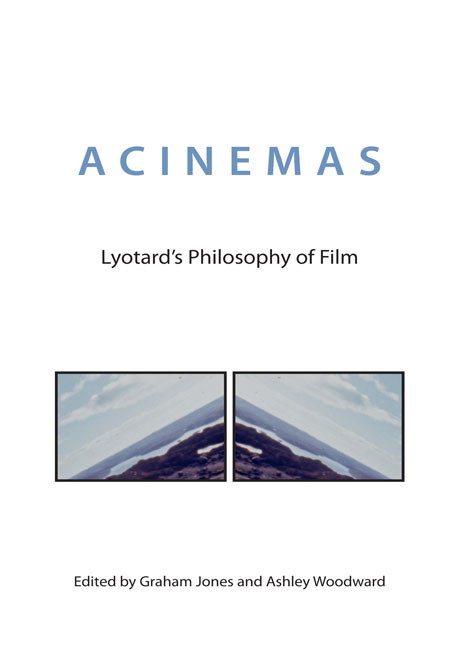Book contents
- Frontmatter
- Contents
- Acknowledgements
- Abbreviations
- Translators’ Note
- I Openings
- II Lyotard's Essays on Film
- III Approaches and Interpretations
- IV Applications and Extensions
- Appendices
- Appendix 1 Lyotard's Film Work
- Appendix 2 Memorial Immemorial
- Appendix 3 Filmography
- Appendix 4 Bibliography
- Notes on Contributors
- Index
Appendix 1 - Lyotard's Film Work
from Appendices
Published online by Cambridge University Press: 23 June 2018
- Frontmatter
- Contents
- Acknowledgements
- Abbreviations
- Translators’ Note
- I Openings
- II Lyotard's Essays on Film
- III Approaches and Interpretations
- IV Applications and Extensions
- Appendices
- Appendix 1 Lyotard's Film Work
- Appendix 2 Memorial Immemorial
- Appendix 3 Filmography
- Appendix 4 Bibliography
- Notes on Contributors
- Index
Summary
In his Peregrinations, which constitutes an intellectual anamnesis, Jean-François Lyotard insisted on the eclectic aspect of his philosophical approach. He had been reproached for this eclecticism, but here he claimed it as his own, specifying that this eclecticism is based on the demand to accord an equal importance to the aesthetic, the political and the ethical. Lyotard's successive works return to this fundamental triple equipollence, which he traced back to his three earlier ‘vocations’: ‘I wanted to become a monk … a painter, or historian’ (P 1). These represent ‘three poles to which I have always been attracted’ (P 6), and Lyotard specified that ‘all three entities are active, unavoidable, in the three fields with the same force, even if not present in the same way’ (P 5). ‘Acinema’ is thus given as an example of an approach relevant to a ‘comparison of politics with art’.
The exigency of this unprecedented philosophical triad is significant for all Lyotard's writings and is found equally in his other works, ones which he didn't mention in Peregrinations and which have been given little consideration. It seems to us that it is worth bearing testimony to some of these other works, in particular those linked with cinema and in which we shared, as companions in some of his peregrinations.
AESTHETICS, POLITICS, ETHICS
This triad was revealed in all its essentials to the students of philosophy at the University of Nanterre who followed the course Lyotard taught, in the university year 1967–8, on Discourse and Figure. The successive episodes of this course led up to May ‘68. This was an occasion to see the ex-militant of Socialism or Barbarism reappear, commenting, with the force of an extreme pertinence, on the figural, surging up in the order of rules.
- Type
- Chapter
- Information
- AcinemasLyotard's Philosophy of Film, pp. 197 - 206Publisher: Edinburgh University PressPrint publication year: 2017



